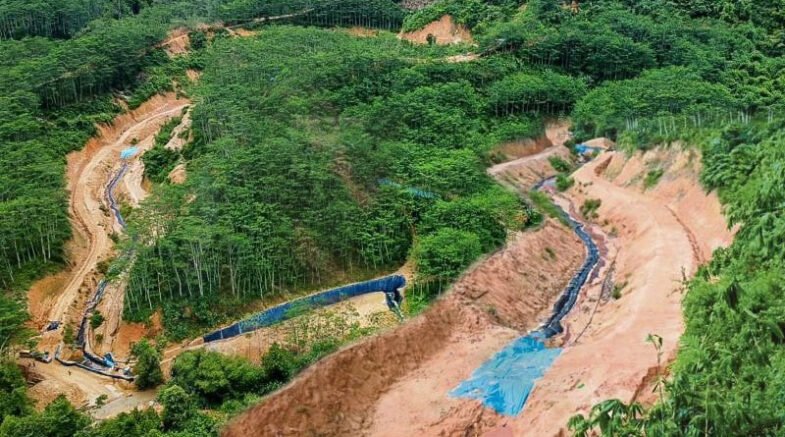WB stated that in order to meet rising global demand & prevent worst effects of climate change, production of critical minerals will need to increase by roughly 500% by 2050.

The mineral industry in Africa is the biggest in the world, and it plays a significant role in the economies of many of the continent’s nations. The critical minerals value chain must be improved, with regulatory policies and reforms, advancements in processing and refining capacity, and increased investment in exploration serving as key solutions, in order for African mineral resources to be converted into economic wealth.
According to the World Bank (WB), in order to meet the rising global demand and prevent the worst effects of climate change, production of critical minerals will need to increase by roughly 500% by 2050. Africa can therefore strengthen its position in the value of green technology because its mineral resources are well-positioned to play a significant role.
Almost all of the nations in Africa are abundant in one or more important minerals. For instance, the largest bauxite reserves in the world are found in Guinea, and the second-largest manganese producer is Gabon. Over 70% of the cobalt produced globally is produced in the Democratic Republic of the Congo (DRC), and uranium ore is primarily exported from Namibia.
Meanwhile, Mozambique and Zimbabwe are the world’s third largest producers of graphite and chromium ore, respectively, while Zambia serves as the largest exporter of unrefined copper and South Africa accounts for the majority of platinum group metal (PGM) reserves, of which over 90% are situated in Africa.
To fully utilise the potential of these resources, however, substantial investment is needed. Events like the upcoming African Critical Minerals Summit will put potential investors in touch with African producing nations, ensuring that the continent assumes its proper position as the world’s top supplier of critical minerals.
African policymakers will need to navigate escalating geopolitical competition while bolstering domestic industries to ensure that value is captured within the continent as investment in African minerals rises. African governments will need to create comprehensive policies, manage environmental risks, and create a welcoming investment environment in order to maximise value creation.
This will allow the private sector to take part in the development of effective critical mineral extraction and processing.
The problem, though, is that not much of Africa’s essential minerals are processed there. As a result, the African Development Bank, a multilateral development finance institution, has developed a critical minerals strategy that includes securing the necessary skills base, ensuring a reliable electricity supply, and improving the investment climate on the continent in order to find solutions to value chain challenges.
Zimbabwe recently passed a law that forbids the export of unrefined lithium, which is another step towards reducing unprocessed exports. The action is a component of larger government efforts to promote expansion along the entire domestic mineral value chain.
Furthermore, the development of regional value chains, such as the 2022 agreement between Zambia and the DRC to collaborate on the expansion of electric battery production capacity, could help to strengthen Africa’s position within the crucial mineral value chain.
A sound governance environment that focuses on processing minerals in-country for consumption in domestic and/or regional markets will need to be developed in countries with abundant deposits of critical minerals in order for the continent’s natural resource wealth to translate into industrialization and development.
In order to take full advantage of the opportunity presented by strengthening the value chain for the continent’s essential minerals, which is poised to result in value addition, job creation, the development of local content, and an equitable knowledge transfer, contract transparency, strong labour rights, and environmental sustainability will be essential.
Steps towards securing Africa’s position as the world’s top supplier of critical minerals include increased investment, regulatory reforms, and a focus on promoting the growth and improvement of the mineral value chain. During the African Critical Minerals Summit, these topics and more will be discussed.
